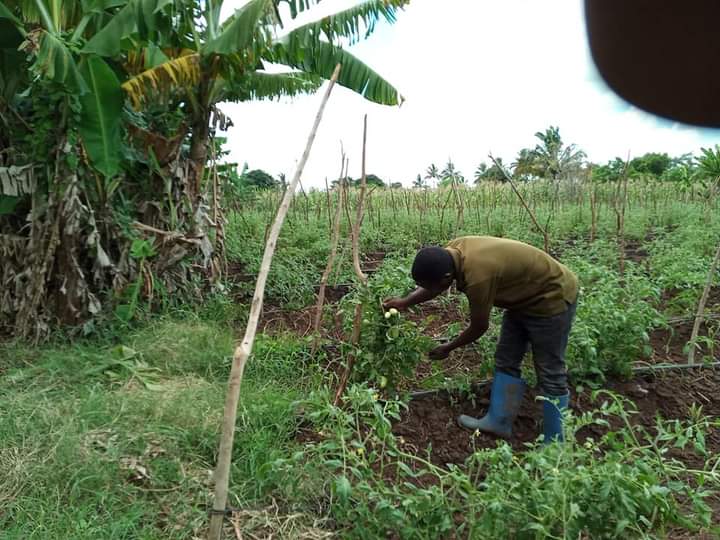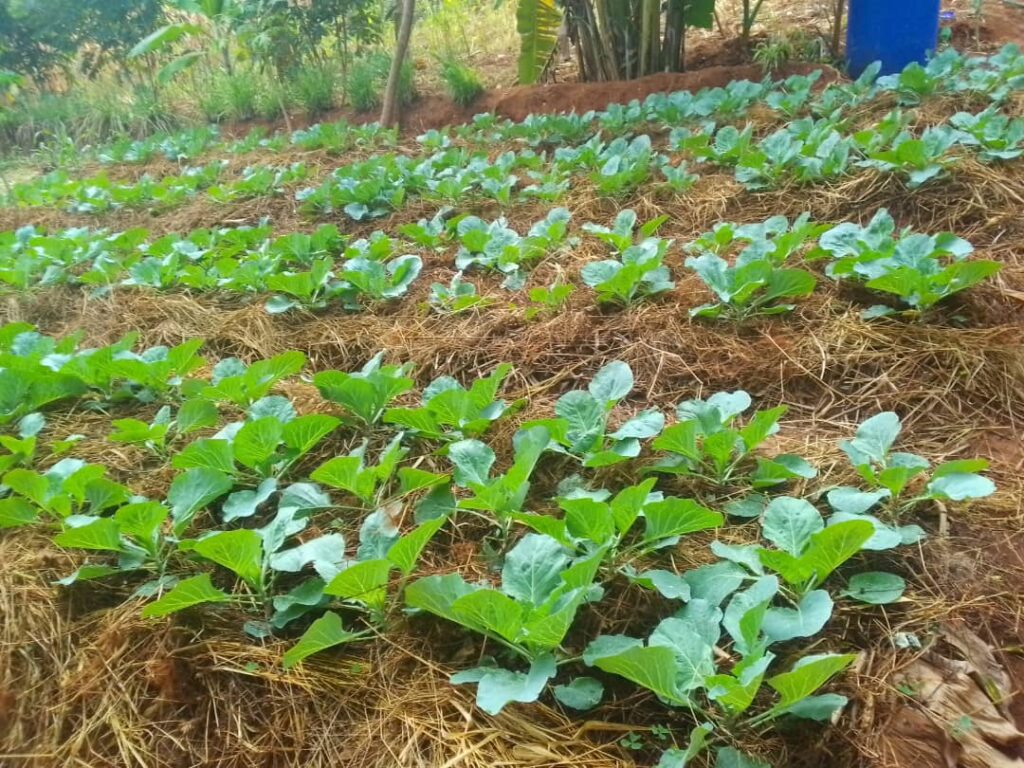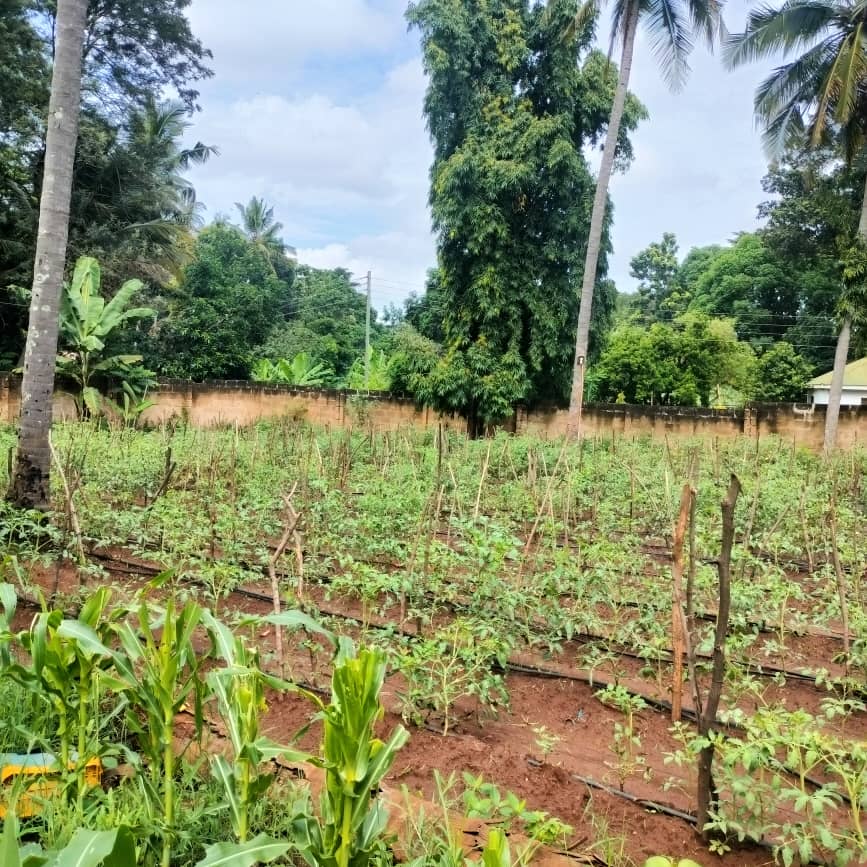Posted by tef mororogo March 25, 2025
The Tanzania Entrepreneurship Foundation (TEF), initiated informally in 2017 and formally established in 2018 as a registered non-profit (Reg. No. OONGO/R/1723), was founded to empower Tanzanians as job creators, inspired by Mr. Gary Shotton of Inspiring Better Business and Tanzanian native Octavian Msongamwanja. By 2021, TEF’s registration solidified its role as a leader in Tanzania’s innovation ecosystem. It delivered projects that foster entrepreneurship. These projects also promote sustainability. The Smart Agriculture Entrepreneurship Training and Climate Resilience Livelihood project was launched in July 2025. This took place in Sangasanga Village, Morogoro Municipality. It builds on TEF’s commitment to economic empowerment. The project focuses on environmental conservation and community-led innovation. It equips farmers with skills to thrive in a changing climate.
The Smart Agriculture Entrepreneurship Training and Climate Resilience Livelihood project is implemented by TEF. Global Food Gardening (GFG)-Switzerland funds the project. It empowers smallholder farmers in Sangasanga Village, Mkundi Ward, Morogoro Municipality. Farmers overcome climate-induced challenges through innovative agricultural practices. The project integrates entrepreneurship training, climate-smart technologies, and market linkages. This enhances food security, income generation, and environmental sustainability. These efforts align with TEF’s mission to foster a community-led movement for economic and ecological resilience.

Targeting 100 households in Sangasanga, a climate vulnerability hotspot, the project addresses drought, food insecurity, and poverty through practical solutions. The project focuses on women, who make up 60% of the beneficiaries. It reduces gender disparities. It also equips farmers with the tools, techniques, and frameworks to excel as agripreneurs. This initiative complements TEF’s Smart Climate Resilience Livelihood Systems project, reinforcing Sangasanga’s transformation into a hub for smart agriculture.
The project embodies “smart agriculture” through:

These elements enable TEF to address Sangasanga’s challenges—crop failures, water scarcity, and high food prices—while fostering entrepreneurship. The project aligns with Tanzania’s National Adaptation Programme of Action (NAPA). It also relates to Nationally Determined Contributions (NDC, 2023). Furthermore, it is in line with the National Climate Change Strategy. These alignments prioritize agriculture and water management.
TEF, as the executing agency, coordinates activities from its Morogoro headquarters, collaborating with village authorities and GFG-Switzerland. Key contributions include:
By embedding these activities within its entrepreneurial ecosystem, TEF empowers Sangasanga’s farmers to build resilient, profitable businesses.
The project is funded by GFG-Switzerland (€10,000). They also provide technical expertise in sustainable agriculture. This reflects TEF’s strategic partnership with global leaders in food systems. GFG’s support helps TEF deploy innovative technologies. It delivers practical training. This complements TEF’s collaborations with Better Business-USA and Sustainable World Corporation (SWC)-Sweden. TEF works with Morogoro Municipal Council to ensure project ownership, drawing on lessons from Sokoine University’s agricultural initiatives.
With GFG’s funding and expertise, the project delivers economic, social, and environmental benefits, prioritizing vulnerable groups:

A success story is that of Mariam, a Sangasanga farmer trained in 2025. Mariam uses drip irrigation and marketing skills she learned from TEF’s workshops. She grows tomatoes in a greenhouse. She sells the surplus to local hotels for TSh 150,000 monthly. Her income supports her daughter’s education, showcasing smart agriculture’s transformative potential.
Since 2021, TEF has reached 11,000 people across Tanzania. In Sangasanga, this project engages 100 direct beneficiaries and 6,000 indirect beneficiaries, reducing malnutrition by an estimated 10%.
The project addresses key challenges:
These solutions demonstrate TEF’s commitment to sustainable outcomes.
The project positions TEF as a leader in Tanzania’s agricultural innovation ecosystem, aligning with global climate goals (e.g., Paris Agreement) and national priorities (NAPA, NDC). Locally, it enhances Sangasanga’s resilience, complementing TEF’s Smart Climate project. Its environmental impact—500 trees planted—sets a model for rural sustainability. The project’s economic and social benefits empower women and youth as agripreneurs.
TEF, under the governance of Dr. Luseko Chilagane, aims to scale the project by:
TEF will strengthen VICOBA systems and market linkages, ensuring sustainability. This project embodies TEF’s vision of a thriving, entrepreneurial Tanzania, driven by smart agriculture.